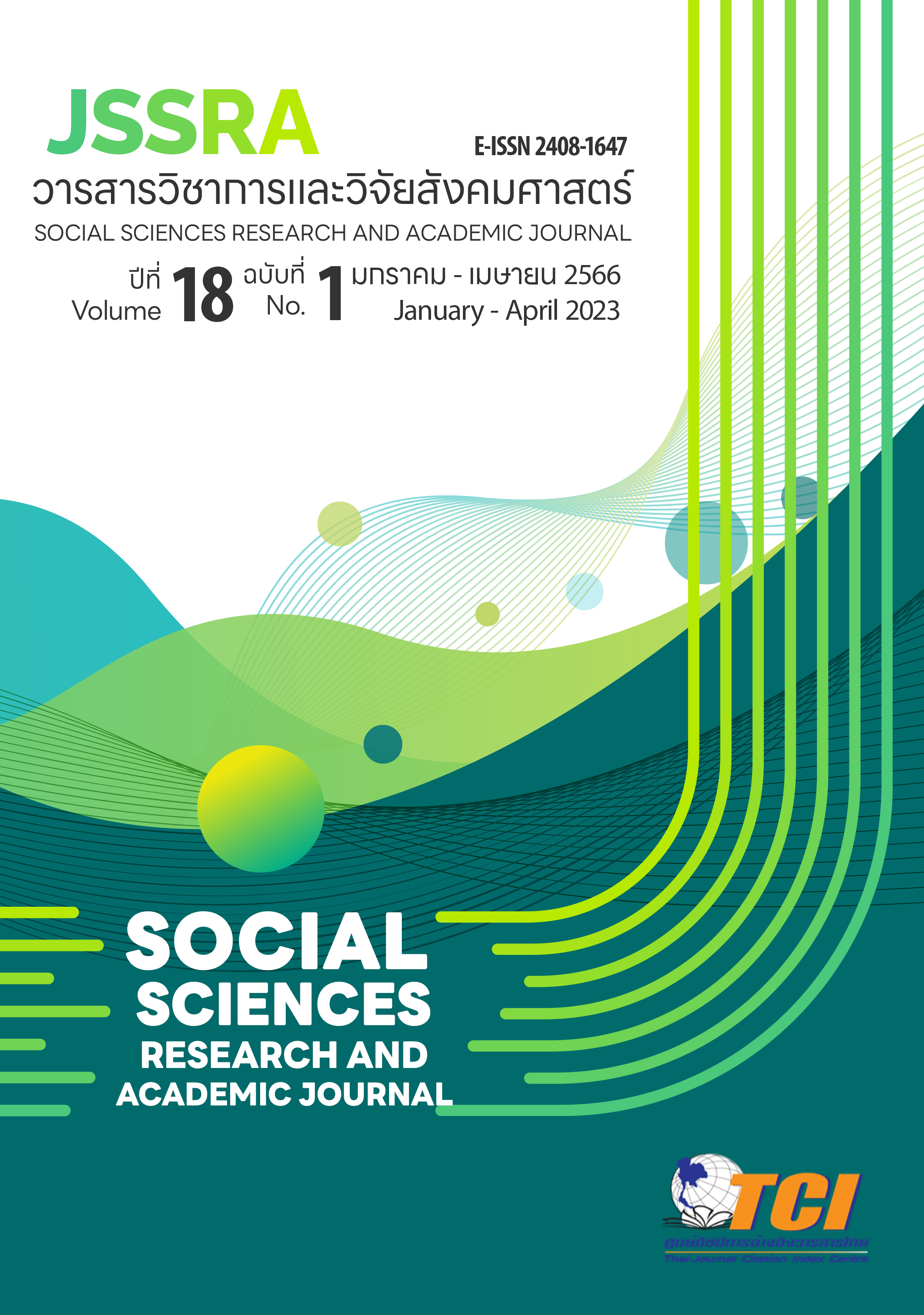The Curriculum Development for Enhancement of Learning Management Ability for Elementary Teachers who do not Graduate Mathematics Education / Mathematics Major Degree
Main Article Content
Abstract
The objective of this research were: 1) to develop curriculum for enhance ability to arrange the learning process for teachers who do not graduate in Mathematics Education/ Mathematics Major Degree and2) to study the outcomes of the developed curriculum. The tools in the study consisted of the interview questionnaire about necessities and guidelines for the curriculum development, the questionnaire aboutstate, problems and needs in the curriculum development, the curriculum evaluation, the basic-level Mathematics test, the lesson planes evaluation, the instruction evaluation, and the satisfaction survey.Analyzed by Frequency, percentage, Mean, Standard Deviation, and Content Analysis. The result indicated as these followings;
1) The developed curriculum, including the principles, purposes, contentscomposed of 3 sections:1) the basic-level Mathematics contents for 10 credits, 2) the arrangement of teaching Mathematics in elementary schools for 1 credit and 3) the management of Mathematics Instruction for 3 credits. Instruction activities, instructional medias, measurements, and assessments by the developed curriculum are most compatible. Besides, the evaluation of the benefits, possibilities, appropriateness, and accuracy were rated at the maximum level.
2) After utilizing the developed curriculum, the teachers were more comprehensible in basic Mathematics; moreover, they could design the lesson plans, and instruct the activities in Mathematics for elementary students at a good level. They also satisfied with the curriculum at maximum level. Aside from thattheir perception, 85.18 percent of the teachers gained more knowledge of basic Mathematics, 92.59 percent of them increased the understanding and skills to design the activities of the lesson plans, and 88.88 percent of them had the better comprehension in Mathematics teaching and the ability to instruct Mathematics better. There was the effect on the academic service which was the increased networks among universities and educational organizations.
Article Details
References
ชญาชล สิริอัครบัญชาและไพโรจน์ เบาใจ (2559).การพัฒนารูปแบบการเรียนการสอนแบบบูรณาการแบบเธรด (Threaded) เพื่อพัฒนาทักษะด้านเทคโนโลยีสารสนเทศของนักศึกษาพยาบาลศาสตร์ มหาวิทยาลัยเอกชน.วารสารมหาวิทยาลัยคริสเตียน. 22(8), 534-550.
ทิพย์วิมล วังแก้วหิรัญ, ปริญญา มีสุข และ อังค์วรา วงษ์รักษา (2564) .กระบวนการพัฒนาวิชาชีพครูแบบชุมชนแห่งการเรียนรู้ทางวิชาชีพ ในประเทศไทยและต่างประเทศ. วารสารเศรษฐศาสตร์และกลยุทธ์การจัดการ. 8(1). 180-199.
ทิศนา แขมมณี. 2550. ศาสตร์การสอน: องค์ความรู้เพื่อการจัดกระบวนการเรียนรู้ที่มีประสิทธิภาพ. กรุงเทพฯ: จุฬาลงกรณ์มหาวิทยาลัย.
รชากานต์ เคนชมพู. (2556). ผลกระทบจากครูผู้สอนสอนไม่ตรงสาขาวิชาเอกต่อผลการทดสอบการศึกษาระดับชาติขั้นพื้นฐาน ระชั้นประถมศึกษาปีที่ 6: กรณีศึกษา โรงเรียนประถมศึกษาสังกัดกระทรวงศึกษาธิการ จังหวัดชัยภูมิ. ปริญญาปรัชญาดุษฎีบัณฑิต (สาขาการบริหารการศึกษา). มหาวิทยาลัยราชภัฏร้อยเอ็ด, ร้อยเอ็ด.
วิบูลย์ พุ่มพูลสวัสดิ์ และ นาที เกิดอรุณ (2561).การพัฒนาหลักสูตรเสริมเพื่อพัฒนานักศึกษาด้านจริยธรรม มหาวิทยาลัยปทุมธานี. วารสารวิชาการ สถาบันเทคโนโลยีแห่งสุวรรณภูมิ. 4(1), 233-247.
สำนักงานคณะกรรมการพัฒนาการเศรษฐกิจและสังคมแห่งชาติ สำนักนายกรัฐมนตรี. (2559). แผนพัฒนาเศรษฐกิจและสังคมแห่งชาติ ฉบับที่ 12 (พ.ศ. 2560-2564). กรุงเทพฯ.
สํานักงานคณะกรรมการการศึกษาแห่งชาติ. (2556). แนวทางการจัดการศึกษาตามพระราชบัญญัติการศึกษาแห่งชาติ (ฉบับที่ 4) พ.ศ. 2562. กรุงเทพฯ: บริษัทพิมพ์ดีจํากัด.
Adams, R. Adward. (1975). DACUM: Approach to Curriculum, Learning and Evaluation in Occupational Training. Ohio: Department of Regional Economic Expansion.
Ausubel, David. P.(1963). The Psychology of Meaningful Verbal Learning : An Introduction to School Learning. New York: Grune & Stration.
Bonwell, C. C., & Eison, J. A. (1991). Active Learning: Creating Excitement in the Classroom. ASHE-ERIC Higher Education Report No. 1. Washington, D.C.: The George Washington University, School of Education and Human Development.
Siridhrungsri, P. (2014). Improving the Quality of Thai Teachers in the 21st Century. Bangkok: Imprint.
Taba , Hilda. (1962). Curriculum Development: Theory and Practice. New York: Harcourt Brace Jovanovich.


